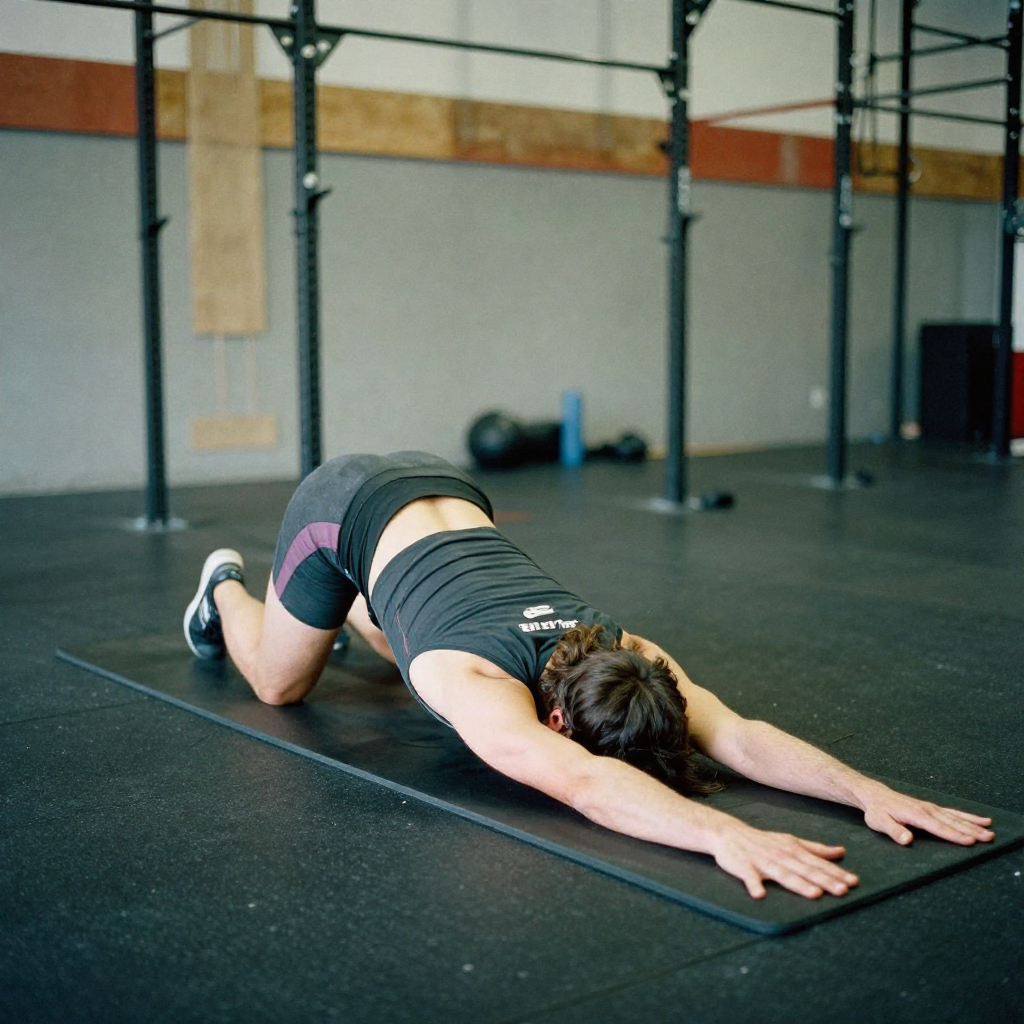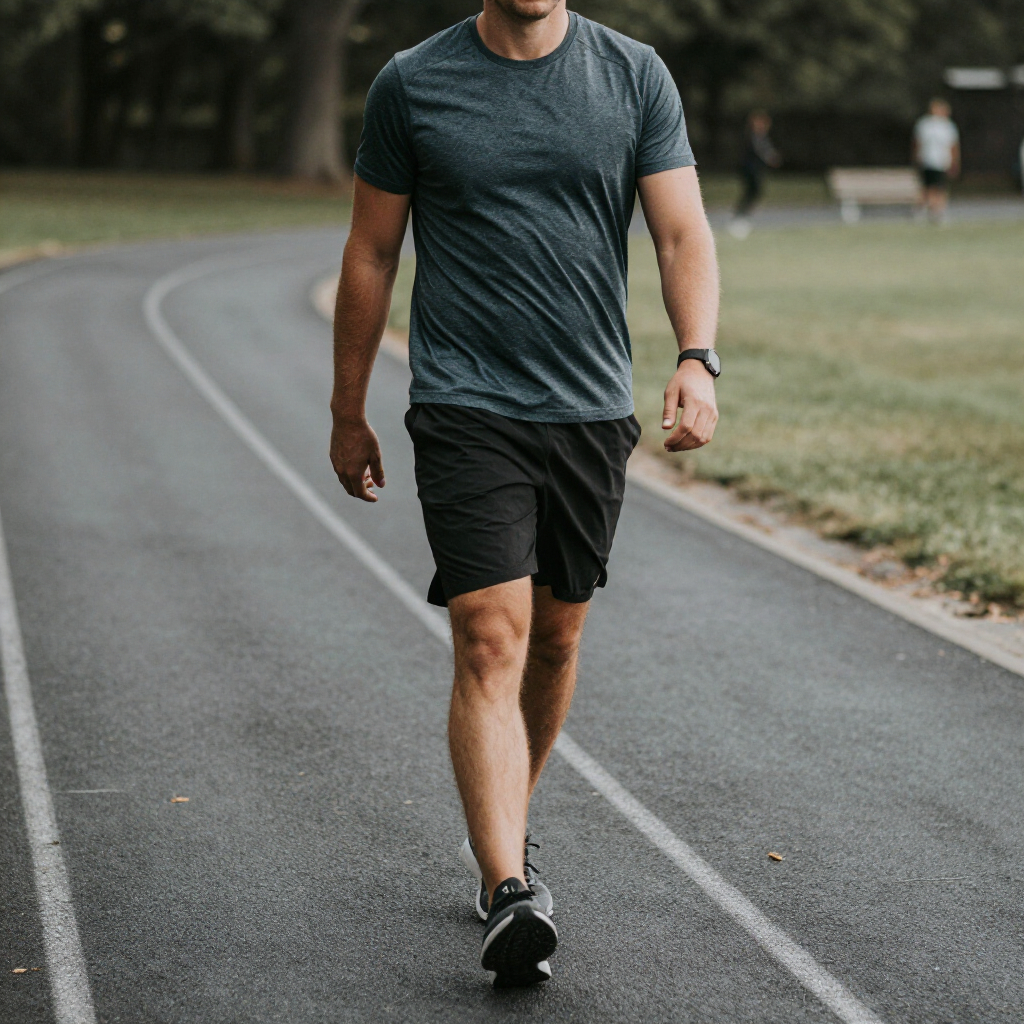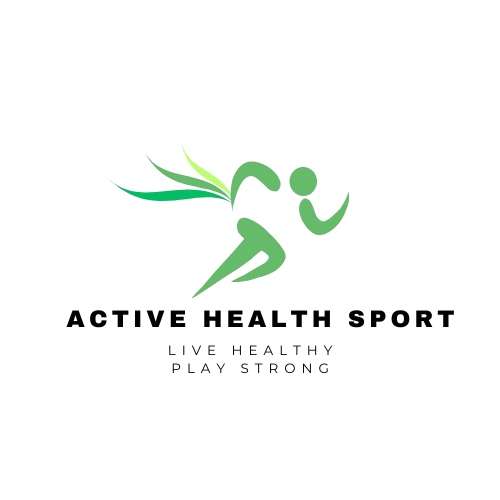For fitness enthusiasts, sleep is just as essential as exercise and nutrition. Proper rest helps muscles recover, hormones balance, and energy levels, making sleep a cornerstone of any effective fitness regimen. But with packed schedules, prioritizing sleep can be challenging.
In this blog, we will cover actionable sleep hacks designed specifically for active individuals, ensuring they can optimize sleep for fitness to maximize recovery and performance.
Introduction | The Link Between Sleep and Fitness
For fitness enthusiasts, sleep is much more than a way to recharge and it’s a powerful recovery tool that enhances physical performance, accelerates muscle repair, and fortifies the immune system. Whether you’re a casual runner, a dedicated bodybuilder, or someone striving to lead an active lifestyle, the quality of your sleep significantly impacts how well you achieve your fitness goals.
Workouts push your body to its limits, triggering microscopic tears in muscle fibers and depleting energy reserves. Sleep is when your body gets to work repairing muscles, replenishing glycogen stores, and balancing critical hormones like growth hormone and cortisol. Without sufficient rest, progress stalls, and risks of injuries or burnout increase.
However, balancing busy schedules with enough restorative sleep can be a real challenge. Late-night workouts, work commitments, and stress often disrupt sleep cycles, leaving many active individuals feeling drained instead of energized.
The good news? With a few simple yet impactful strategies, you can optimize your sleep patterns to maximize recovery, boost energy, and unlock your full fitness potential.
Why Sleep is Crucial for Fitness Enthusiasts
Sleep is often referred to as the body’s natural recovery system, and for fitness enthusiasts, it’s a cornerstone of progress. Whether you’re training for a marathon or building muscle in the gym, quality sleep is the foundation upon which performance and recovery rest. Here’s why sleep is so vital:
- Muscle Repair and Growth
During deep sleep stages, the body releases growth hormones, which are essential for muscle repair and tissue growth. These hormones repair the microtears in your muscles caused by exercise, allowing them to rebuild stronger and more resilient. Without adequate sleep, this repair process is hindered, slowing down recovery and reducing the effectiveness of your workouts. - Improved Mental Sharpness
Good sleep enhances cognitive functions like focus, reaction time, and decision-making. For fitness enthusiasts, this translates to better performance during workouts, whether it’s executing complex movements, maintaining proper form, or strategizing during competitive sports. Sleep deprivation can lead to sluggish thinking and poor coordination, increasing the risk of mistakes and injuries. - Sustained Energy Levels
Sleep directly impacts your body’s energy production. Adequate rest restores glycogen levels, your body’s primary energy source for physical activity. When you’re well-rested, you’re better equipped to handle intense training sessions and sustain stamina throughout the day. Poor sleep, on the other hand, leaves you feeling fatigued and less motivated to push through challenging workouts. - Hormonal Balance for Weight Management
Sleep regulates critical hunger hormones, such as ghrelin (which stimulates appetite) and leptin (which signals fullness). When you’re sleep-deprived, ghrelin levels rise, and leptin levels fall, making you more likely to overeat and crave unhealthy foods. - Injury Prevention
Rested muscles are more resilient and less prone to strain or fatigue. Sleep allows the nervous system to recover, ensuring better coordination and muscle control during physical activity. Chronic sleep deprivation can impair these functions, increasing the likelihood of strains, sprains, or overuse injuries. - Boosted Immune Function
Strenuous exercise can temporarily weaken the immune system, making athletes more susceptible to illnesses. Sleep strengthens immune defenses by promoting the production of cytokines, proteins that help fight infection and inflammation.
Pro Tip: Aim for 7–9 hours of quality sleep each night and track your sleep patterns to ensure you’re getting the restorative rest your body needs.
What are the Common Sleep Challenges for Active Individuals?
For fitness enthusiasts, achieving restful sleep can be a challenge, especially when balancing demanding schedules, intense training, and everyday responsibilities.
1. Late-Night Workouts
Engaging in high-intensity sessions close to bedtime can be invigorating, but the adrenaline rush and elevated heart rate make it harder to relax and fall asleep. Exercise also increases core body temperature, which can interfere with the natural cooling process your body undergoes before sleep.
Solution:
- Schedule workouts earlier in the day whenever possible.
- If evenings are your only option, focus on low-intensity activities like yoga or stretching to wind down.
2. Stress and Overtraining
Active individuals often push their limits, but excessive physical and mental stress can elevate cortisol levels, disrupting the natural sleep-wake cycle. Symptoms like restlessness, difficulty falling asleep, or waking up frequently at night are common signs of overtraining.
Solution:
- Incorporate rest days into your workout routine to allow your body to recover.
- Practice stress-reducing techniques like mindfulness or meditation before bed to lower cortisol levels.
3. Irregular Schedules
Juggling work, social life, and fitness commitments can lead to inconsistent sleep patterns. A fluctuating bedtime confuses your internal clock, making it harder to establish a regular sleep routine.
Solution:
- Stick to a consistent sleep schedule, even on weekends.
- Use reminders or alarms to signal when it’s time to wind down for the night.
4. Nutritional Factors
Diet plays a significant role in sleep quality. Consuming stimulants like caffeine late in the day or indulging in heavy meals close to bedtime can lead to restlessness and indigestion.
Solution:
- Avoid caffeine at least 6–8 hours before bedtime.
- Opt for light snacks, such as a banana or a handful of nuts, if you feel hungry late at night.

5. Poor Sleep Environment
Your sleep environment greatly influences the quality of rest. Bright lights, background noise, or uncomfortable bedding can create barriers to falling and staying asleep.
Solution:
- Invest in blackout curtains, a white noise machine, or earplugs to minimize disturbances.
- Ensure your mattress and pillows provide adequate support and comfort.
- Keep your bedroom cool, ideally between 60–67°F (15–20°C), to promote better sleep.
Pro Tip: Use a sleep journal or tracking app to pinpoint recurring issues and monitor progress as you implement changes to your routine.
10 Sleep Hacks to Optimize Your Rest
Yet, with packed schedules and endless distractions, optimizing sleep can feel like a challenge. The good news is that small, actionable changes can transform your sleep routine, helping you wake up refreshed and ready to tackle the day. We have written the ten practical sleep hacks after researching and proving them.
1. Stick to a Consistent Sleep Schedule
Aim to sleep and wake up at the same time daily, even on weekends. Consistency reinforces your body’s internal clock, improving sleep quality.
2. Wind Down with a Relaxation Routine
Creating a calming pre-sleep ritual signals to your body that it’s time to unwind. Whether it’s light stretching, meditation, or reading a book, these activities help reduce stress and transition your mind into rest mode.
3. Limit Screen Time Before Bed
The blue light emitted by screens suppresses melatonin production, a hormone essential for sleep. To counter this, avoid phones, tablets, and TVs at least an hour before bed. If necessary, use blue light-blocking glasses or enable night mode on your devices.
4. Optimize Your Workout Timing
Exercise is excellent for sleep, but timing matters. High-intensity workouts late in the evening can overstimulate your body, making it harder to wind down. Schedule vigorous activities earlier in the day, and reserve evenings for low-impact options like yoga or walking.
5. Fuel Smartly
What you eat and drink can significantly impact your sleep. Avoid heavy meals, caffeine, and alcohol close to bedtime, as they can disrupt digestion and relaxation. Instead, choose light snacks like bananas, almonds, or warm milk to promote sleepiness.
6. Use Sleep-Tracking Apps
Modern technology can help you understand your sleep patterns. Apps like Sleep Cycle, Fitbit, or WHOOP monitor your rest and provide insights into how you can improve sleep quality. These tools can help identify behaviors that work best for your routine.
7. Embrace Power Naps
Short naps during the day (20–30 minutes) can rejuvenate you without interfering with your nighttime sleep. Keep naps early in the afternoon to avoid disrupting your natural sleep cycle.
8. Prioritize Hydration (But Time It Right)
Staying hydrated throughout the day supports your overall health, but drinking too much water in the evening can cause frequent bathroom trips at night. Gradually reduce water intake a few hours before bed.
9. Practice Breathing Exercises
Techniques like the 4-7-8 method (inhale for 4 seconds, hold for 7, exhale for 8) can calm your nervous system and prepare you for rest.
10. Invest in Quality Sleep Accessories
Your sleep environment plays a crucial role in restfulness. A comfortable mattress, supportive pillows, blackout curtains, and a white noise machine can turn your bedroom into a sleep sanctuary, free from distractions.
Pro Tip: Start by implementing one or two hacks at a time, and gradually add more to create a comprehensive, sustainable sleep routine.
Also Read the Latest: Why Recovery Workouts Are Replacing Traditional Gym Routines

Creating the Perfect Environment to Optimize Sleep for Fitness
Your sleep environment significantly impacts rest quality. Make your bedroom a haven for relaxation by following these tips:
- Keep it Cool: Maintain a room temperature between 60–67°F for optimal comfort.
- Eliminate Distractions: Remove electronics and clutter to minimize stress.
- Adjust Lighting: Use dim, warm lighting in the evening and blackout curtains to block outside light.
- Prioritize Comfort: Choose breathable bedding materials and ergonomic pillows.
A peaceful environment signals your body to transition into rest mode.
The Role of Nutrition and Timing in Sleep Quality
Nutrition plays a critical role in both the quality of your sleep and your overall recovery. The foods you eat, and when you eat them, can either support restful sleep or interfere with it. If you are a fitness enthusiast who needs optimal sleep for recovery, focusing on dietary choices and meal timing can make a significant difference.
One of the most impactful changes you can make is to avoid stimulants close to bedtime. Stimulants such as caffeine, energy drinks, and even chocolate contain compounds like caffeine and theobromine, both of which can keep you awake and disrupt your sleep cycle. It’s recommended to avoid consuming these products at least six hours before bedtime, as their effects can linger in your system long enough to interfere with your ability to fall asleep or stay asleep.
In addition to avoiding stimulants, you can also incorporate sleep-friendly foods into your evening meals. Foods that are rich in magnesium, such as spinach, nuts, and seeds, can help relax the nervous system and prepare the body for sleep. Magnesium has been linked to improved sleep quality, as it helps regulate the production of melatonin, the hormone responsible for sleep-wake cycles.
Similarly, foods that contain tryptophan (an amino acid found in turkey), dairy products, and certain nuts (can also encourage sleep). Tryptophan is a precursor to serotonin, which can eventually be converted into melatonin, further promoting relaxation and sleep.
Meal timing is another essential factor in supporting sleep. Eating large, heavy meals right before bed can strain your digestive system and cause discomfort, making it harder to fall asleep. To allow for proper digestion, try to finish meals at least 2-3 hours before bedtime. On the other hand, a light, balanced snack, such as a banana or a small bowl of yogurt, may be beneficial if you feel hungry before bed, as it can provide the body with a small dose of nutrients without overloading the system.
Also Read the Latest: Why Jump Rope Is 2025’s Best Full-Body Workout
Real-Life Stories of Fitness Enthusiasts Who Improved Sleep
Case Study 1: Loralee Stieban’s Transformation
Loralee, a dedicated triathlete from New York, had always struggled with insomnia after her evening training sessions. The intense workouts, especially after a long day at work, would leave her feeling wired and unable to unwind before bed. Loralee found herself waking up multiple times throughout the night, feeling tired and drained the next day, impacting her performance during training and races.
After researching ways to improve her sleep, Loralee decided to make some changes to her routine. She started scheduling her workouts earlier in the day, shifting her intense sessions to mornings. Loralee also started incorporating evening mindfulness practices, such as guided meditation and light stretching, to calm her mind.
Within a few weeks, she noticed a significant improvement in her sleep quality. She woke up feeling more rested, and her energy levels during training skyrocketed. Her race times improved, and she felt more balanced overall.
Case Study 2: Chris’s Recovery Journey
Chris, a competitive weightlifter from Dallas, had always pushed himself hard at the gym. However, over time, he began to experience persistent fatigue and frequent muscle soreness, even after his recovery days. His sleep patterns were irregular, and he often found himself tossing and turning at night, struggling to get enough rest. Chris realized that overtraining, combined with late-night caffeine consumption, was likely contributing to his lack of sleep and prolonged recovery time.
To make a change, Chris started cutting out caffeine after 3 PM and replaced his usual energy drinks with hydrating, non-caffeinated options. He also started incorporating power naps into his day to give his body a chance to recover without sacrificing his nighttime sleep. Chris found that taking a 20-minute nap after lunch helped him feel more energized and improved his evening rest.
As a result, he began to notice that his muscles recovered faster, his strength improved, and his sleep quality was significantly better. With more energy to push through his workouts, Chris was able to build strength more effectively and feel revitalized each morning.
Case Study 3: Michelle Sarmiento
Michelle, a yoga instructor from San Francisco, had always been in tune with her body, but even she struggled with achieving consistent, restful sleep. She was often busy teaching multiple classes per day, and by the time she got home, her mind was still racing. Michelle knew she needed to find a way to improve her sleep if she wanted to continue being at her best for her students.
Michelle began experimenting with her sleep environment. She turned her bedroom into a sanctuary by adding blackout curtains to block out any light and using aromatherapy with calming scents like lavender to promote relaxation. She also adjusted her evening routine by eating lighter meals, focusing on foods that aided digestion, and avoiding overloading her system before bedtime.
She woke up feeling more refreshed and energized, ready to take on her teaching schedule with renewed enthusiasm. The combination of a peaceful environment, healthier eating habits, and a consistent bedtime allowed Michelle ia to experience deeper, more restorative sleep, which in turn improved her daily performance in both yoga and life.
These real-life stories (Shared with the Active Health Sport Team) highlight how small but impactful changes to sleep routines, nutrition, and environment can significantly enhance both sleep quality and athletic performance.

Final Thoughts | Rest Your Way to Fitness Success
For fitness enthusiasts, sleep often takes a back seat to the more obvious components of an active lifestyle, like training and diet. However, sleep is just as crucial as any workout or meal when it comes to achieving peak physical performance. In fact, sufficient sleep is a cornerstone of any successful fitness journey, allowing for improved athletic performance, faster recovery, and better overall health.
Establishing a consistent sleep schedule, creating a sleep-friendly environment, and fueling your body with the right nutrients are just a few strategies that can elevate your rest and, consequently, your physical performance. It’s not just about getting enough sleep, it’s about the quality of that sleep, which is essential for muscle repair, cognitive function, and overall well-being.
At Active Health Sport, we encourage you to view sleep not as an afterthought or luxury, but as an integral part of your fitness routine. Start by implementing one or two of the sleep tips we’ve discussed, and gradually build your way to better sleep habits. Your body needs rest to function at its best & welcome the power of sleep, and watch as your energy, strength, and overall fitness improve. Don’t underestimate the power of a good night’s sleep (it might be the game-changer you’ve been searching for).
That’s all from today’s guide folks! We hope you found this guide helpful and insightful, If you have any questions in your mind feel free to comment below or email us your queries, we are happy to respond to you or solve your queries.
You might also like…
- Why Mobility Matters More Than Muscle for CrossFit Progress
 In CrossFit culture, strength numbers often steal the spotlight: heavier deadlifts, faster WOD times, and bigger PRs. While muscle and power are essential, they are not the limiting factor… Read more: Why Mobility Matters More Than Muscle for CrossFit Progress
In CrossFit culture, strength numbers often steal the spotlight: heavier deadlifts, faster WOD times, and bigger PRs. While muscle and power are essential, they are not the limiting factor… Read more: Why Mobility Matters More Than Muscle for CrossFit Progress - Zone-2 Walking for CrossFit Athletes Explained
 In CrossFit, conditioning is often associated with intense, fast-paced WODs, high heart rates, and breathless finishes. While this intensity builds power and short-term fitness, it does not fully support… Read more: Zone-2 Walking for CrossFit Athletes Explained
In CrossFit, conditioning is often associated with intense, fast-paced WODs, high heart rates, and breathless finishes. While this intensity builds power and short-term fitness, it does not fully support… Read more: Zone-2 Walking for CrossFit Athletes Explained - How Low-Intensity Walking Restores the Nervous System
 CrossFit is designed to test physical limits. Heavy lifts, fast-paced metabolic conditioning, and complex gymnastic movements demand not only muscular strength but also significant nervous system output. While most… Read more: How Low-Intensity Walking Restores the Nervous System
CrossFit is designed to test physical limits. Heavy lifts, fast-paced metabolic conditioning, and complex gymnastic movements demand not only muscular strength but also significant nervous system output. While most… Read more: How Low-Intensity Walking Restores the Nervous System

Kait Amazra is the founder and lead writer of Active Health Sport. With over 25 years of experience in health, fitness, and wellness education, Kait combines professional expertise with a passion for helping people live stronger, healthier, and more balanced lives.
As a licensed health and fitness professional, Kait has worked alongside industry experts to deliver evidence-based insights on physical activity, nutrition, recovery, and holistic well-being. Through Active Health Sport, Kait’s mission is to make trusted, practical, and science-backed health information accessible to everyone, from beginners building new habits to athletes seeking peak performance.


Thanks. I have a question for you.
Your article helped me a lot, roger that miss.